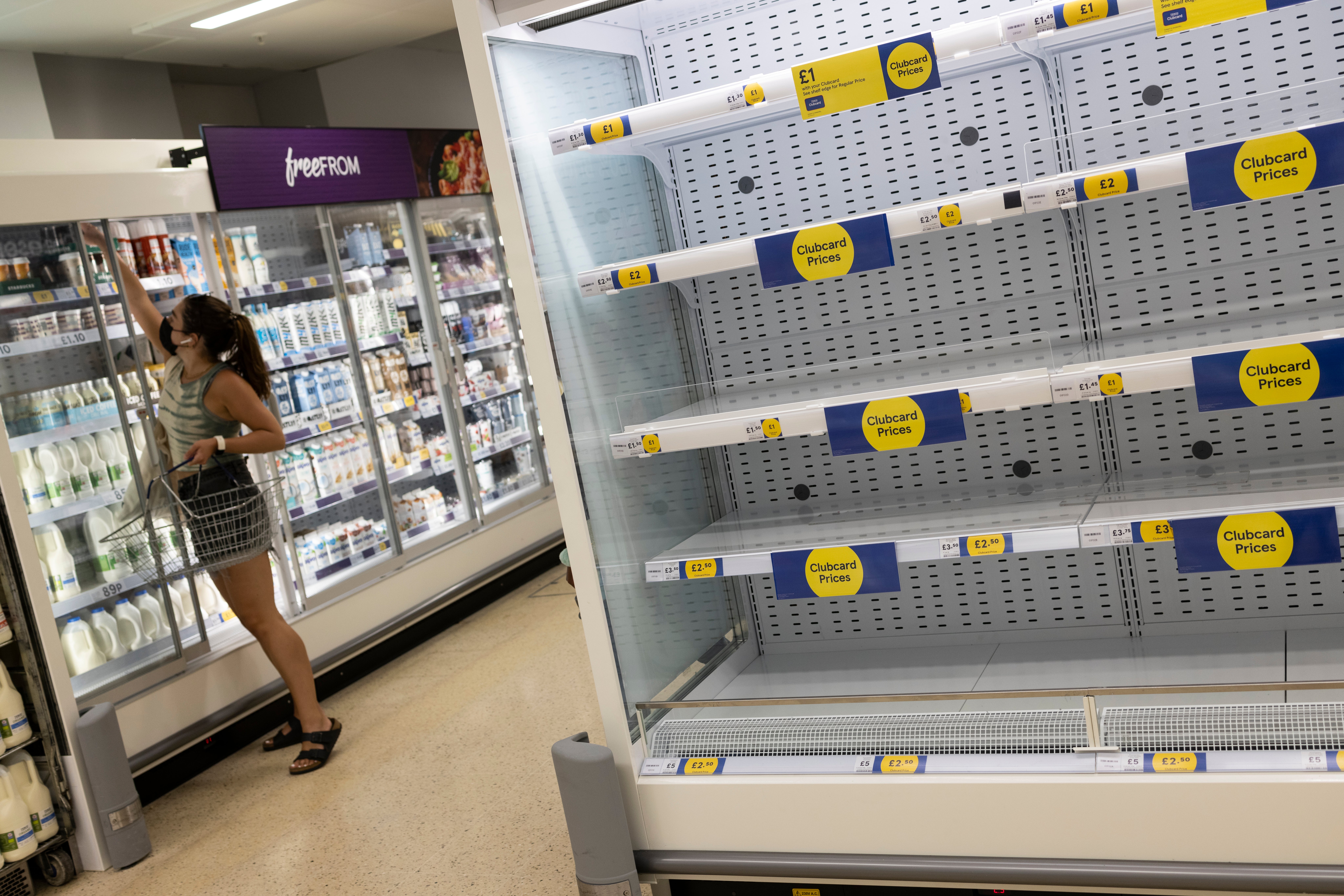Staff shortages to last two years, warns business organisation
Recruitment gap hitting hotels and restaurants as well as transport, CBI says

Widespread staff shortages caused by post-Brexit immigration policies, training shortfalls and the Covid pandemic could continue for another two years, putting a brake on the UK’s recovery from lockdown, a leading business organisation has warned.
Alongside the widely publicised shortage of HGV drivers, the CBI reported companies in other sectors cutting back on activities due to a lack of staff, including hotels reducing bookable rooms, restaurants choosing between opening for lunch and dinner, and suppliers doubling lead-in times for big purchases.
The CBI called on ministers to put trades including drivers, welders, butchers and bricklayers on the shortage occupation list, to make it easier for companies to recruit from abroad.
And it said that in the longer term, skills policies must be tailored to supply the workers needed to fill vacancies.
CBI labour-market intelligence released today points to labour shortages as “a growing constraint on businesses’ plans to invest in the year ahead”.
And the organisation warned that recruitment gaps would not be resolved by the withdrawal of the furlough scheme on 1 October, which is expected to result in a wave of redundancies, forcing thousands of workers onto the jobs market.
In a message to Boris Johnson and his government, CBI director general Tony Danker warned: “Standing firm and waiting for shortages to solve themselves is not the way to run an economy. We need to simultaneously address short-term economic needs and long-term economic reform.”
Mr Danker added: “Labour shortages are biting right across the economy. While the CBI and other economists still predict growth returning to pre-pandemic levels later this year, furlough ending is not the panacea some people think will magically fill labour supply gaps.
“These shortages are already affecting business operations, and will have a negative impact on the UK’s economic recovery.”
He said that other European countries were also experiencing staffing shortages, but said that pressure on sectors including hospitality, logistics and food processing had been heightened in the UK by the numbers of overseas workers leaving the country during the pandemic.
“New immigration rules make replacing those who left more complex,” said the CBI chief.
“Building a more innovative economy – coupled with better training and education – can sustainably improve business performance, wages and living standards. But transformation on this scale requires planning and takes time.
“The government’s ambition that the UK economy should become more high-skilled and productive is right. But implying that this can be achieved overnight is simply wrong. And a refusal to deploy temporary and targeted interventions to enable economic recovery is self-defeating.
“The CBI has heard from companies actively cutting capacity because they can’t meet demand, like the hoteliers limiting the number of bookable rooms because they don’t have enough housekeeping staff and can’t get linen laundered. Meanwhile some restaurant owners have had to choose between lunchtime and evening services when trying to make the most of summer.
“It’s also visible to consumers when lead-in times for purchases like kitchens or furniture double.
“Let’s be clear: employers back existing government schemes to get people back into work, and businesses are already spending significant amounts on training. But that takes time to yield results, and some members suggest it could take two years rather than a couple of months for labour shortages to be fully eliminated.
“Using existing levers under the UK’s control – like placing drivers, welders, butchers and bricklayers on the shortage occupation list – could make a real difference. The government promised an immigration system that would focus on the skills we need rather than unrestrained access to overseas labour. Yet here we have obvious and short-term skilled need, but a system that can’t seem to respond.”
The general secretary of the GMB union, Gary Smith, said: “We are paying the price for years of cost-cutting and austerity on workers’ pay and conditions.
“Instead of easing the labour market crisis, a furlough cliff-edge risks choking a recovery before it even begins.
“The lessons of the last decade must be learned – you can’t cut your way out of a crisis.
“It’s time to end Britain’s race to the bottom on pay and conditions.”
Join our commenting forum
Join thought-provoking conversations, follow other Independent readers and see their replies
Comments
Bookmark popover
Removed from bookmarks